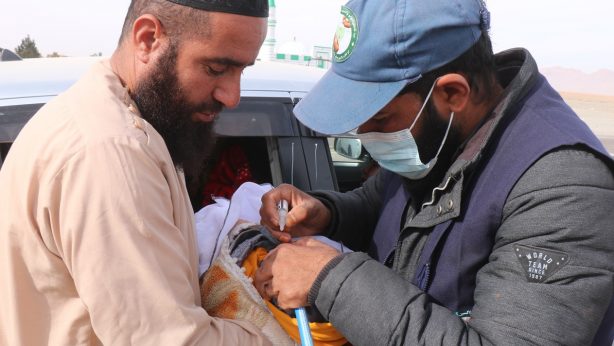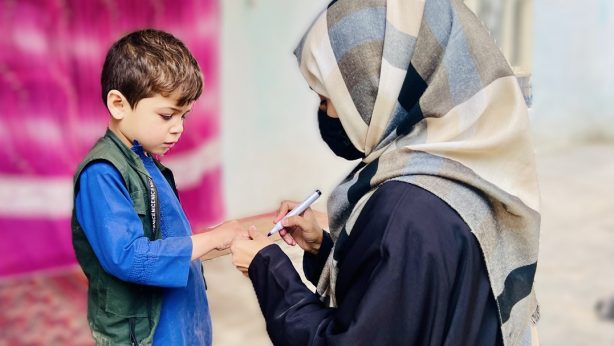Polio-Free Samangan: The Result of Unity and Collaboration
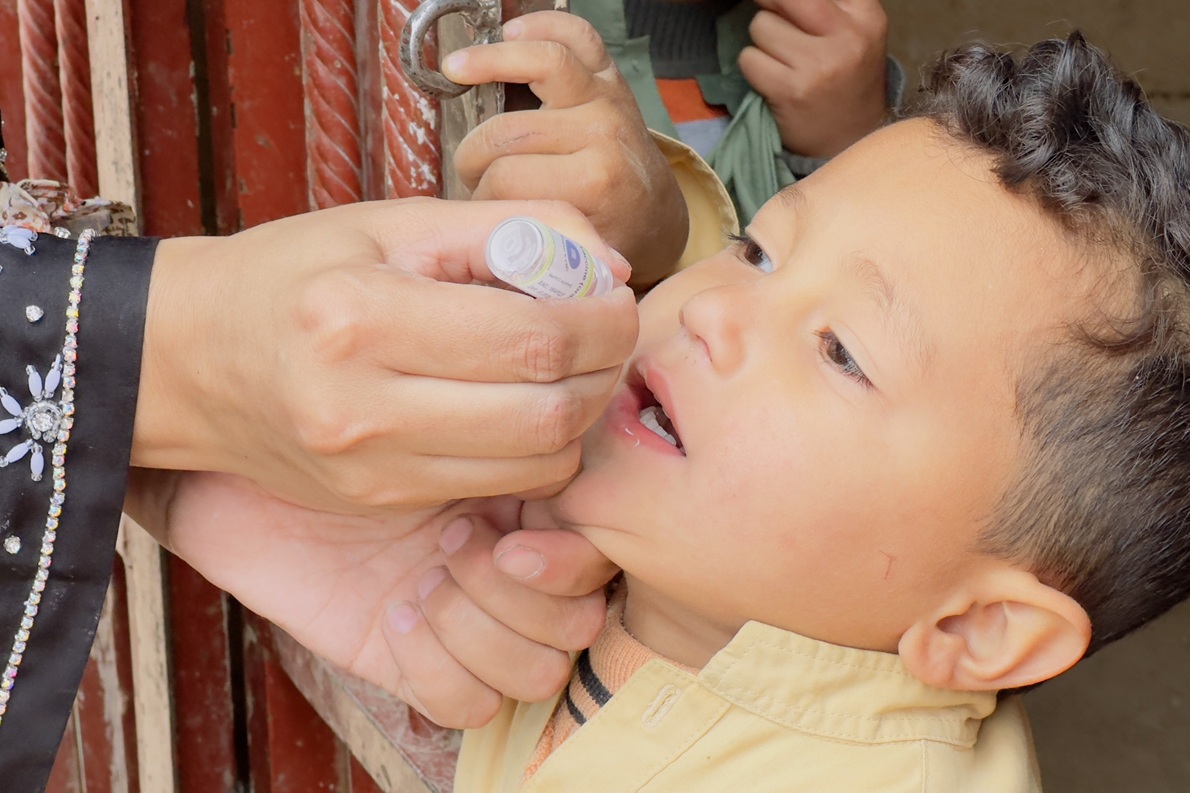
Samangan, Afghanistan – Samangan province, located in northern Afghanistan, renowned for its majestic mountains and historical landmarks, stands as a shining example of a successful fight against polio.
No polio cases have been reported in Samangan for the past 24 years, a result of the unity and collaborative efforts of polio vaccination campaign volunteers, healthcare workers, and the community.
The people of Samangan have embraced each vaccination campaign as a national duty, ensuring that every child, from the most remote areas to urban centers, receives the polio vaccine. This commitment has freed the province from the threat of polio and serves as an inspiring story of unity and cooperation for other regions of the country.
Polio, a disease that often results in permanent disability in children, remains one of the most serious health challenges in Afghanistan. However, Samangan has achieved remarkable success in combating this disease over the past 24 years.
No positive polio cases have been recorded in the province for more than two decades, a result of the collective efforts of the provincial Department of Public Health, UNICEF, and other health-support organizations, as well as the tireless dedication of volunteers, healthcare workers, and the local community.
Dr. Gulnazar Ahmadi, head of the Expanded Program on Immunization (EPI) in Samangan’s Department of Public Health, said, “We have consistently strived to conduct comprehensive and inclusive polio vaccination campaigns throughout the province, ensuring they reach even the most distant areas.”
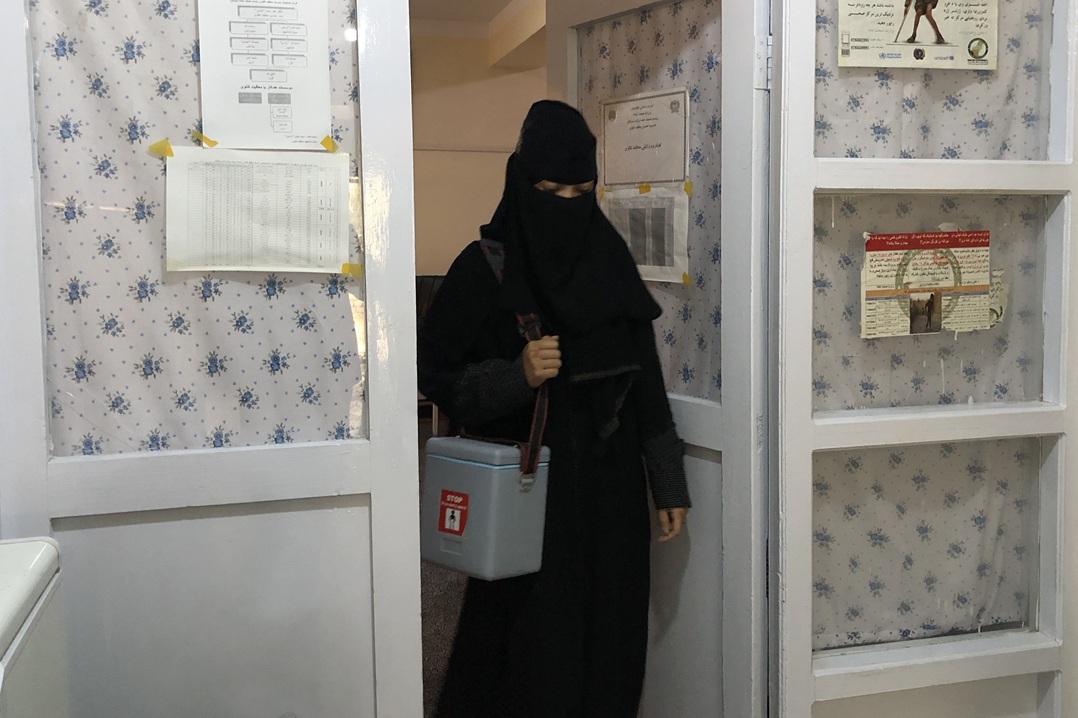 Zarghona, a 29-year-old active vaccinator in Samangan, shared, “Even in the most challenging circumstances, we strive to ensure that every child is vaccinated. We often face cultural and social restrictions, but we know that our small efforts pave the way for significant changes.” © Polio Free Afghanistan / 2024/ Abdul Saboor Serat
Zarghona, a 29-year-old active vaccinator in Samangan, shared, “Even in the most challenging circumstances, we strive to ensure that every child is vaccinated. We often face cultural and social restrictions, but we know that our small efforts pave the way for significant changes.” © Polio Free Afghanistan / 2024/ Abdul Saboor Serat
According to him, the last positive polio case in Samangan was recorded on September 10, 2000. Since then, no new cases have been reported.
He added that the province has 22 campaign coordinators, 92 supervisors, and 918 two-member teams who work tirelessly to vaccinate around 140,000 children in the provincial capital, Aybak, and all districts to protect them from polio.
Ahmadi credits these achievements to the relentless efforts of volunteers and mobilizers, as well as the strong coordination and collaboration among the province’s institutions. According to him, all the institutions have collectively shouldered this responsibility, striving to ensure that no child is left unvaccinated.
He also noted that the people of Samangan fully support the vaccination process, willingly and confidently ensuring their children are immunized. Consequently, each campaign cycle has been successfully implemented, with vaccines reaching every child on time.
The Role and Value of Female Volunteers
Zarghona, a 29-year-old active vaccinator in Samangan, shared, “Even in the most challenging circumstances, we strive to ensure that every child is vaccinated. We often face cultural and social restrictions, but we know that our small efforts pave the way for significant changes.”
She says that the presence of female volunteers in the campaigns has been particularly effective in gaining the trust of families, especially in rural areas, as women are often responsible for the health care of children within the household.
Zarghona adds that the role of religious scholars in this regard is crucial. Their cooperation has helped communities recognize the true threat of polio, encouraging them to vaccinate their children regularly.
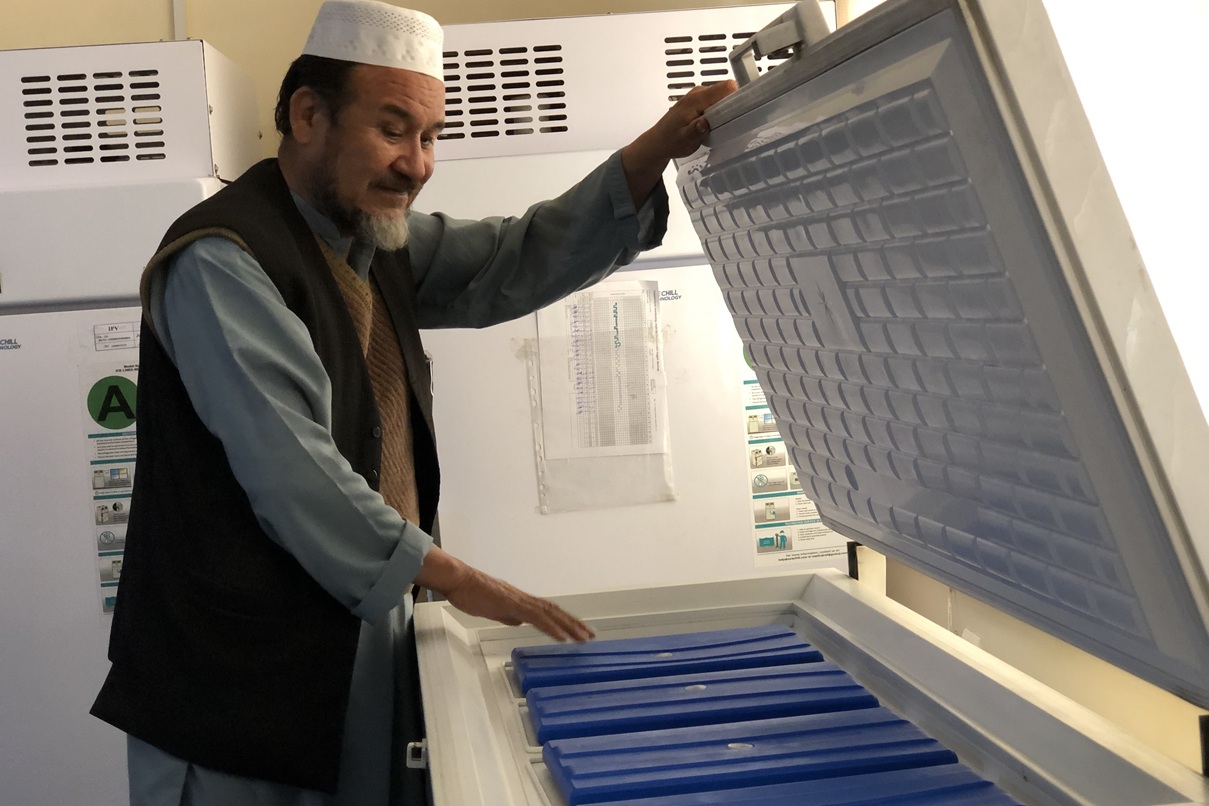 No polio cases have been reported in Samangan for the past 24 years, a result of the unity and collaborative efforts of polio vaccination campaign volunteers, healthcare workers, and the community. © Polio Free Afghanistan / 2024/ Abdul Saboor Serat
No polio cases have been reported in Samangan for the past 24 years, a result of the unity and collaborative efforts of polio vaccination campaign volunteers, healthcare workers, and the community. © Polio Free Afghanistan / 2024/ Abdul Saboor Serat
Community Support and the Role of Religious Scholars
Azizullah, a resident of Samangan, says that, alongside others, religious scholars play a vital role in the fight against polio by continually raising public awareness.
“The scholars have always told us that, according to Islam, health and self-care are mandatory; therefore, vaccination is the only way to prevent polio, and we must vaccinate our children to safeguard them from this dangerous disease,” he added.
Dr. Ghulam Sadiq Halimi, who has worked in the health sector in Samangan for a long time, says that the vaccination process faced specific challenges, but efforts from volunteer teams have resolved these issues.
“In the beginning, we encountered many obstacles because some people were distrustful of the vaccine, while others saw it as part of a foreign culture. However, we provided clear explanations to the people over time,” he said.
Dr. Halimi further noted that delivering vaccines to remote parts of some villages was a significant challenge, but volunteer teams and healthcare workers worked tirelessly under all conditions. They persuaded the people of Samangan that vaccination is essential for the health and future safety of their children.
Abdul Saboor Seerat, Polio Free Afghanistan

